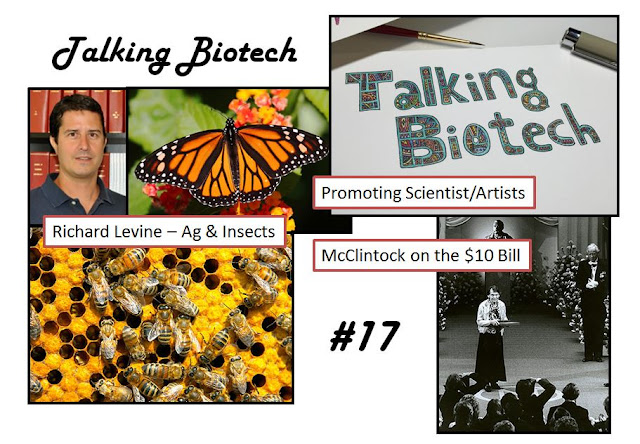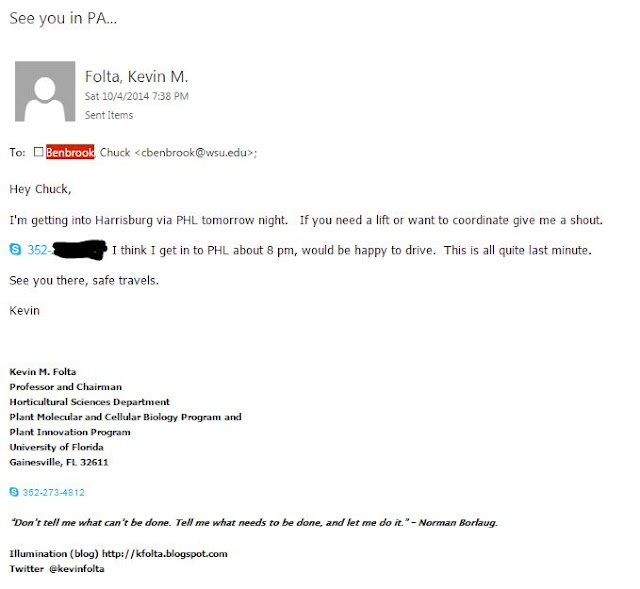Cherry Picking and "Return on Investment"

In a textbook case of cherry picking, one sentence keeps emerging in the activist trial-by-internet concerning the Monsanto donation to my science communication program. The backstory is that my university received a donation from the company toward my outreach program, which covered the costs for me to travel and teach scientists how to talk about science. That was very nice of them, wonderful. Having funds to rent a facility, travel to the location, buy coffee/doughnuts or subs for the workshop is a real help. Previously this was all funded personally buy taking monies offered to me as speaker fees and deferring them to the Talking Biotech program. I remain extremely grateful for their support, even after those funds have been allocated elsewhere by the university. I was so grateful, that I noted this in an email to the Monsanto Company. That became a huge deal when 4600 pages of emails were seized by activists back in June. Out of the tens of thousands of sentences t




